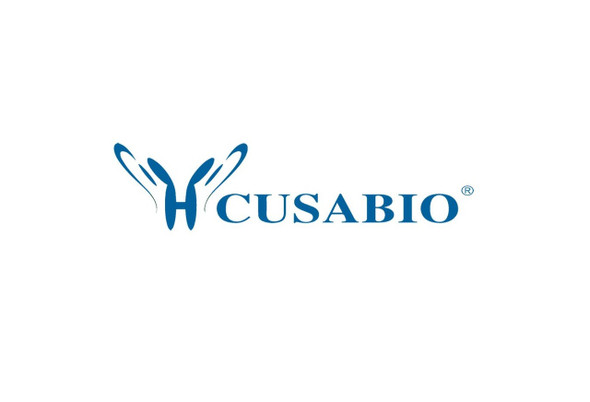Cusabio Human Recombinants
Recombinant Human Caspase-7 (CASP7), partial | CSB-RP154794h(A4)
- SKU:
- CSB-RP154794h(A4)
- Availability:
- 13 - 23 Working Days
Description
Recombinant Human Caspase-7 (CASP7), partial | CSB-RP154794h(A4) | Cusabio
Alternative Name(s): Apoptotic protease Mch-3CMH-1ICE-like apoptotic protease 3 ;ICE-LAP3
Gene Names: CASP7
Research Areas: Apoptosis
Organism: Homo sapiens (Human)
AA Sequence: ANPRYKIPVEADFLFAYSTVPGYYSWRSPGRGSWFVQALCSILEEHGKDLEIMQILTRVNDRVARHFESQSDDPHFHEKKQIPCVVSMLTKELYFSQ
Source: E.coli
Tag Info: N-terminal 6xHis-tagged
Expression Region: 207-303aa
Sequence Info: Partial
MW: 15.3 kDa
Purity: Greater than 90% as determined by SDS-PAGE.
Relevance: Involved in the activation cascade of caspases responsible for apoptosis execution. Cleaves and activates sterol regulatory elent binding proteins (SREBPs). Proteolytically cleaves poly(ADP-ribose) polymerase (PARP) at a '216-Asp-|-Gly-217' bond. Overexpression promotes programmed cell death.
Reference: Mch3, a novel human apoptotic cysteine protease highly related to CPP32.Fernandes-Alnemri T., Takahashi A., Armstrong R.C., Krebs J., Fritz L.C., Tomaselli K.J., Wang L., Yu Z., Croce C.M., Salveson G., Earnshaw W.C., Litwack G., Alnemri E.S.Cancer Res. 55:6045-6052(1995)
Storage: The shelf life is related to many factors, storage state, buffer ingredients, storage temperature and the stability of the protein itself. Generally, the shelf life of liquid form is 6 months at -20?/-80?. The shelf life of lyophilized form is 12 months at -20?/-80?.
Notes: Repeated freezing and thawing is not recommended. Store working aliquots at 4? for up to one week.
Function: Involved in the activation cascade of caspases responsible for apoptosis execution. Cleaves and activates sterol regulatory element binding proteins (SREBPs). Proteolytically cleaves poly(ADP-ribose) polymerase (PARP) at a '216-Asp-|-Gly-217' bond. Overexpression promotes programmed cell death.
Involvement in disease:
Subcellular Location: Cytoplasm
Protein Families: Peptidase C14A family
Tissue Specificity: Highly expressed in lung, skeletal muscle, liver, kidney, spleen and heart, and moderately in testis. No expression in the brain.
Paythway: TNFsignalingpathway
Form: Liquid or Lyophilized powder
Buffer: If the delivery form is liquid, the default storage buffer is Tris/PBS-based buffer, 5%-50% glycerol. If the delivery form is lyophilized powder, the buffer before lyophilization is Tris/PBS-based buffer, 6% Trehalose, pH 8.0.
Reconstitution: We recommend that this vial be briefly centrifuged prior to opening to bring the contents to the bottom. Please reconstitute protein in deionized sterile water to a concentration of 0.1-1.0 mg/mL.We recommend to add 5-50% of glycerol (final concentration) and aliquot for long-term storage at -20?/-80?. Our default final concentration of glycerol is 50%. Customers could use it as reference.
Uniprot ID: P55210
HGNC Database Link: HGNC
UniGene Database Link: UniGene
KEGG Database Link: KEGG
STRING Database Link: STRING
OMIM Database Link: OMIM


-SDS__77902.1638526777.jpg?c=1)

-SDS__77902.1638526777.jpg?c=1)




